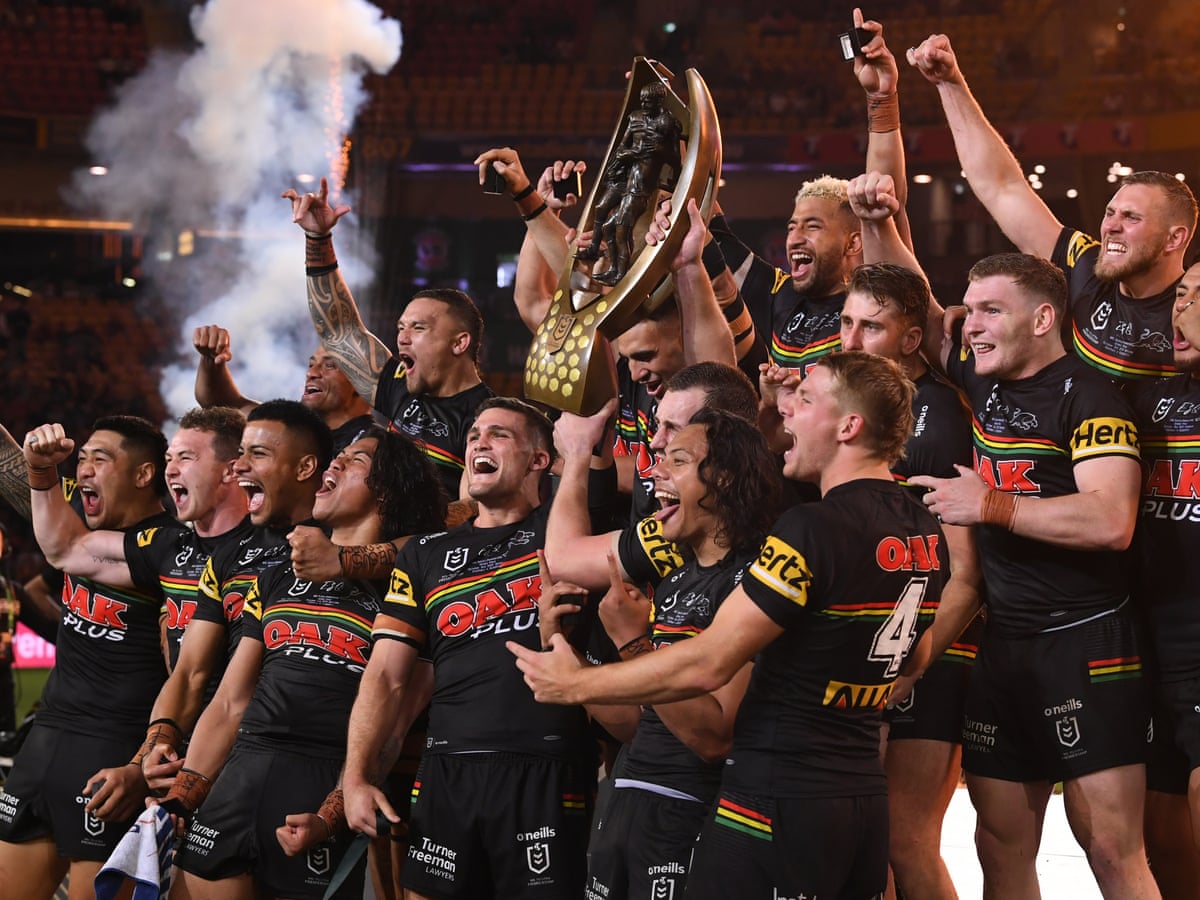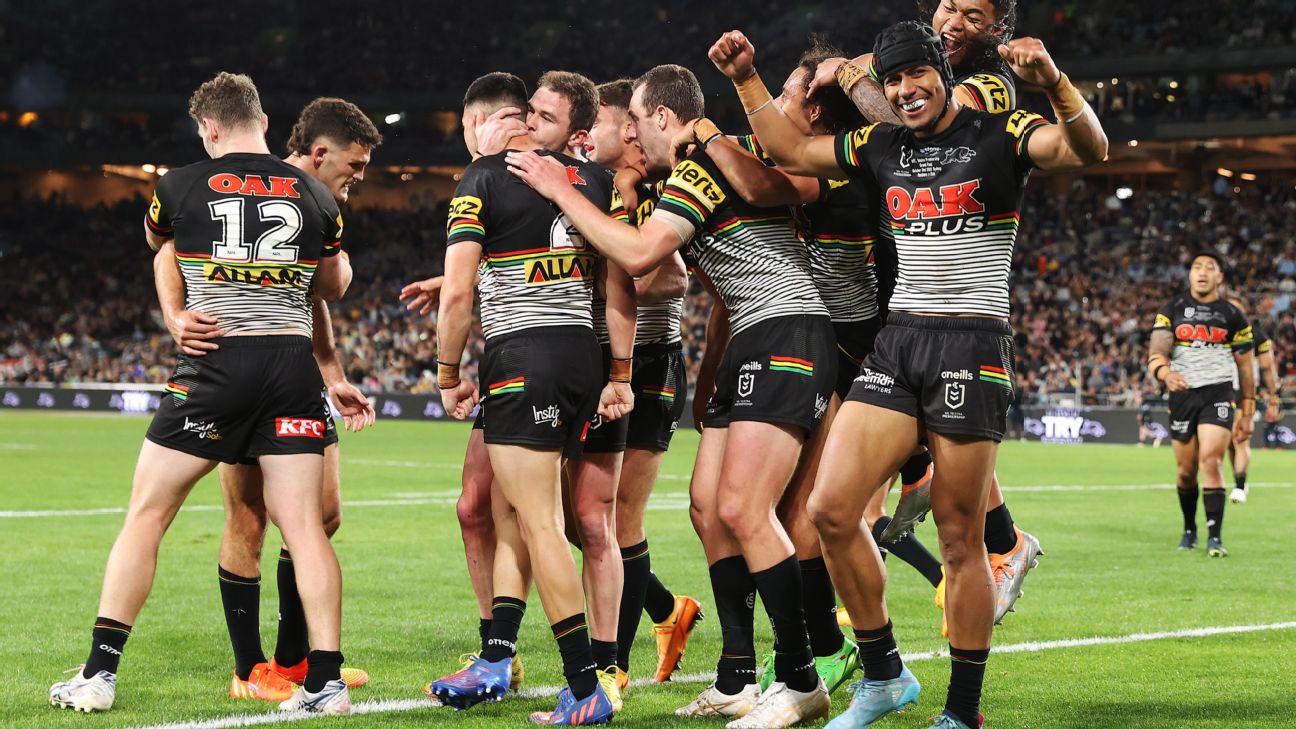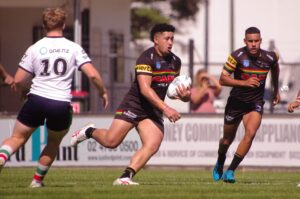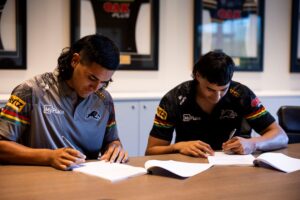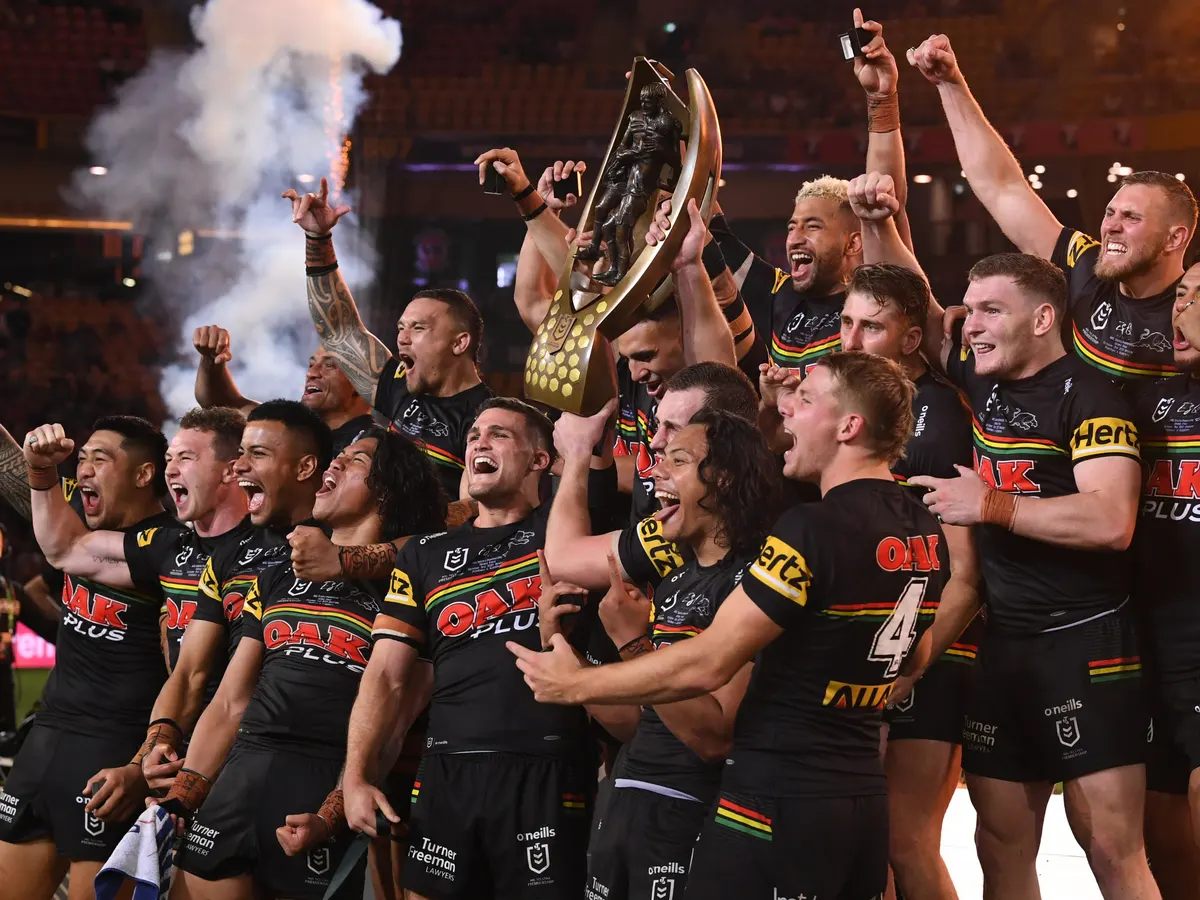
Just before the unexpected news of James Fisher-Harris’ departure from Penrith broke, Panthers CEO of Rugby League Matt Cameron received a call. A journalist inquired about a prop-related development, to which Cameron revealed the signing of young Luron Patea. While not the news the reporter anticipated, it highlighted the organization’s proactive approach, always staying ahead of the curve.
Cameron acknowledged the unexpected loss of Fisher-Harris, emphasizing the team’s preparedness with emerging talents like Patea, who at 21, had already shown promise in reserve grade. This exemplified the Panthers’ robust production line, ensuring continuity even in the face of surprises.
Regarding Fisher-Harris’ departure, Cameron admitted it was unforeseen, especially the timing. However, he expressed confidence in the depth of talent within the squad, citing Lindsay Smith, Liam Henry, and Moses Leota as ready replacements. While the long-term solution remains uncertain, Cameron hinted at potential market options, a topic for future discussions. He underscored the organization’s track record of addressing challenges with foresight and adaptability.
Replacing a key figure like James Fisher-Harris presents a formidable challenge for the Panthers, but overcoming such departures has become a hallmark of their success.
The club’s ability to seamlessly integrate new talent, such as Izack Tago for Matt Burton, Mitch Kenny for Api Koroisau, or Sunia Turuva for Stephen Crichton, exemplifies their next-man-up mentality, essential to building a dynasty.
“In a salary cap environment, losing players annually has become our reality since the 2020 grand final,” explained Cameron. “However, we anticipate and prepare for these transitions, ensuring we have capable replacements ready to step up.”
While parting with players like Jarome Luai is never easy, Cameron takes pride in their development, noting that many former Panthers have secured lucrative contracts elsewhere. This underscores the effectiveness of their development system, which continuously feeds talent into the main squad.
Panthers Group CEO Brian Fletcher finds humor in the potential lineup of ex-Panthers since their initial grand final victory in 2021, highlighting the club’s role as a talent factory.
Indeed, each success story like Tago or Turuva reinforces the effectiveness of the Panthers’ system.
“We often face criticism for losing star players,” Fletcher remarked.
“We faced challenges like losing Burton, Koroisau, and Kikau in the same year, and then Crichton and Leniu recently. But despite that, we’re still just two points off the lead. That’s a testament to the strength of our system. We’ve got it right. Winning all four comps in 2022, a first in 113 years, speaks volumes. My success as Group CEO is largely due to surrounding myself with capable individuals.”
One such individual is Cameron, who spearheaded a revamped pathways program dubbed ‘built from within’ upon joining the club in 2012.
This initiative aimed to expand the talent pool by reaching out to the Central West region of New South Wales, fostering a strong presence both on and off the field. Since then, Penrith has played a significant role in the region, holding games in Bathurst and Mudgee, and implementing programs like the Bathurst Cubs, a development camp for aspiring young players.
Cameron shared, “We noticed a lack of Penrith representation among junior players in Bathurst back in 2012. So, we initiated programs to address this gap, gradually expanding our reach to other areas like Dubbo and Forbes. Players who excel in representative football, like Liam Henry and Jack Cole, progress through programs such as the Western Rams, similar to our Harold Matts and SG Ball pathways.”
This commitment to nurturing local talent has been pivotal in Penrith’s success, bridging the gap between grassroots and professional rugby league. From debuting local talent like Isaah Yeo to developing promising players like Henry and Cole, the club has demonstrated its dedication to homegrown talent.
Coach Ivan Cleary emphasized, “We’ve transitioned from a club that relied heavily on external recruits to one that prioritizes nurturing local talent. Our focus has shifted to growing talent within our backyard and the Central West region, minimizing external recruitment.”
Cleary added, “Since our historic 2022 season, clubs have begun poaching not just our NRL stars but also our junior prospects. However, we remain committed to our community and continue to prioritize grassroots development, particularly in the Central West.”
Penrith’s resilience in maintaining dominance amidst player departures can be attributed to their alignment with the coach’s vision. Cameron explained, “From the outset, we aligned our talent development efforts with Ivan’s vision for the first-grade squad. We tailored our coaching and recruitment strategies to his requirements, ensuring a seamless pathway from grassroots to first grade.”
“I liken it to the head coach teaching quadratic equations, while the under-16s coach focuses on basic arithmetic. So when players like Liam Henry or Jack Cole transition from the Western Rams program to Penrith, the coaching philosophy remains consistent across all levels, from under-21s to reserve grade and first grade. It’s all about alignment.”
As the club grapples with the task of replacing their three-time premiership-winning prop, they remain focused on defending their title and etching their names in history as the first team to achieve four consecutive wins since the 1960s.
“Everyone seems to be looking ahead to 2025, but we still have 23 games to play in 2024,” Cameron emphasized. “For the players departing the club, there’s still plenty to strive for. Historically, players in their final year at the club have delivered exceptional performances. So, I believe 2024 has the potential to be very special. We’re process-driven, not result-driven, so we’ll stick to our approach and see where it takes us.”
